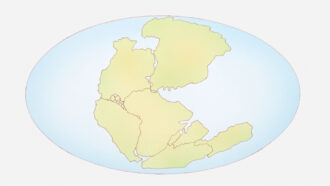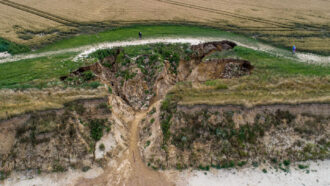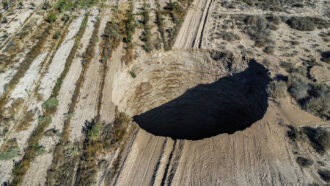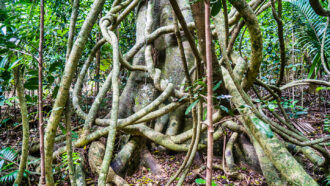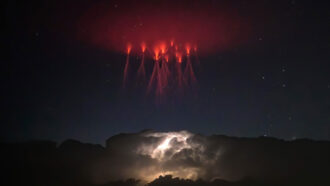Groundwater removal linked to quake
Pumping water from the ground in southeastern Spain may have triggered a deadly 2011 earthquake there
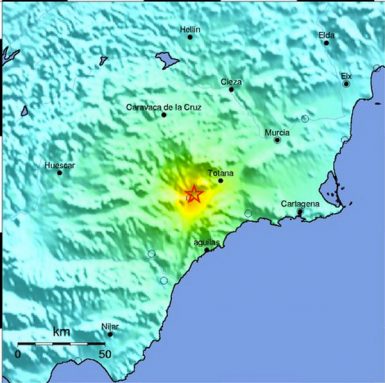
People in southeastern Spain pump water from the ground for drinking and for watering crops. That action may have helped set off an earthquake that killed nine people in 2011, a new study concludes.
Geologist Pablo González at the University of Western Ontario in London, Canada, worked on the new study. He told Science News that the earthquake struck in a region of Spain where quakes occur regularly. The fatal one in 2011 probably would have struck anyway, he says.
“Even without the groundwater extraction, the earthquake was overdue,” he told Science News. But he now suspects that pumping out the water triggered the tremors to occur sooner.
Geologists like González study connections among human activities, groundwater and earthquakes. When a dam is built, for example, water piles up in one place. Previous studies have shown that such an accumulation may set off a quake in the region. Some scientists suspect that’s what happened in 2008, when a powerful earthquake killed 80,000 people in Sichuan, China. Other studies have indicated that water pumped into the ground during fracking — a process that releases deep, natural supplies of oil and gas — can trigger earthquakes as well.
After the Spanish quake in May 2011, González and his collaborators wondered if groundwater pumping had played a role. They already knew that so much water is pumped out of this region that the ground level there drops 10 centimeters (almost 4 inches) every year.
The scientists studied satellite data to see how much the ground moved during the quake. Then they tried to figure out what types of underground stresses could trigger those motions. They found that the ground shook the most in places where underground stores of water, called aquifers, had been drained. That connection suggested that removing so much water had increased the stress in the surrounding ground. That stress finally triggered the earthquake, the team now suggests in the research journal Nature Geoscience.
The new study is the first one to show that removing water can trigger quakes. Along with studies linking water accumulation to quakes, the work shows that what humans do aboveground can make a big difference downstairs as well.
Power Words
earthquake A sudden and violent shaking of the ground, sometimes causing great destruction, as a result of movements within Earth’s crust or volcanic action.
aquifer Rock that can contain or transmit groundwater.
groundwater Water held underground in the soil or in pores and crevices in rock.
geology The science that deals with Earth’s physical structure and substance, its history and the processes that act on it.
stress Pressure or tension exerted on a material object.

